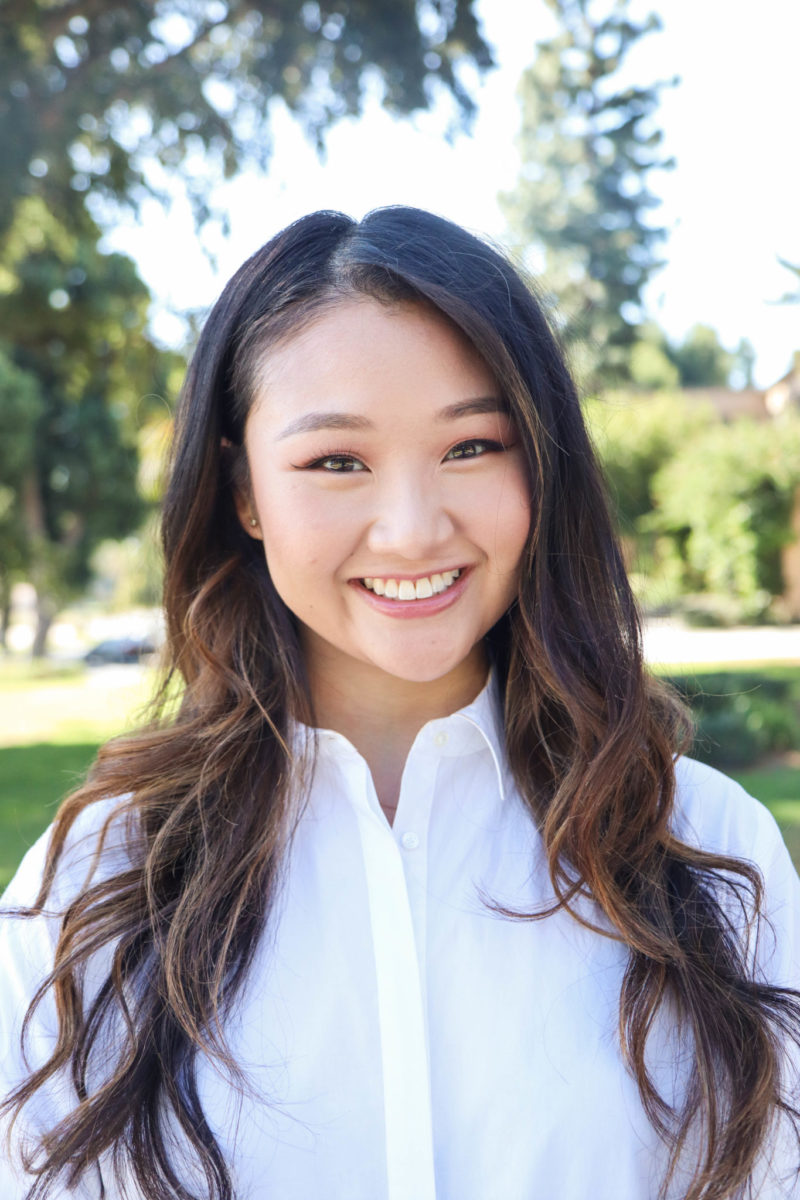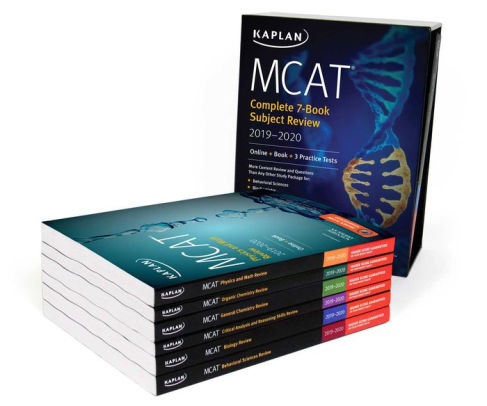Graduate School Exams: Five Senior Perspectives
John Kim (Biomedical Science) on the MCAT:

Studying for the MCAT was a journey that required persistence and mental fortitude. Studying for five hours a day for ~2 months can definitely take a toll on emotional health; exercising and maintaining a healthy social life were stress outlets that definitely helped me as I studied. Obstacles are inevitable when it comes to studying for the MCAT. There were some days when I absolutely did not feel like studying and days when I felt burnt out. This is okay; take a day or two off when this crossroad comes, but make sure to jump right back in where you left off. It is easy for such a “break” to spill over to a week or two and, by the end of it, the test is right around the corner.
I personally did not find the prep books to be useful since I am more of a visual person. Khan academy and their free MCAT content helped me review all the material I needed to know for the exam. Considering that this company is the only third party affiliated with the AAMC, I consider their practice questions to accurately represent what would actually be on the MCAT exam. To be honest, this is the first standardized exam that I actually studied for and I made many mistakes preparing for it. For prospective medical students, I highly advise that you leave your phone on silent or zipped up in your backpack as you study. The most important part is to be persistent and consistent with your studies.
Thomas Pak (Healthcare Management) on the DAT:

I started studying for the DAT after my sophomore year and maintained a daily study schedule (6-7 hours) for myself throughout that summer. I would wake up around, have a light breakfast, and then study at the library. Then I would have lunch, then move to a different library for my afternoon study session. Unfortunately, I used an older DAT prep book thinking that it would properly prepare me for the DAT. However, when I used some of the practice exams on DAT Bootcamp, I realized that I didn’t have enough knowledge to do well, and decided to postpone the exam. A year later, I followed the DAT Bootcamp schedule as closely as possible and managed to do well on my DAT this past summer, after my junior year.
There are several things I learned during my time studying for the DAT. First, use DAT Bootcamp! This utility has a nicely laid out schedule and all the materials needed to do well on the exam. Second, trust the system. There were many times throughout my studies that I was worried about how much work I was doing in a given day. The results of my practice tests were not as high as I wanted, and I felt that it was due to a deficiency in the amount of material I was covering per day. I reminded myself that those practice tests were to show me where my weak points were and to study those topics thoroughly, not to determine how prepared I was for the exam. Third, be consistent. Notice that I didn’t say be perfect. I have heard people equate studying for the DAT with running a marathon and I completely agree. There will be days where none of the material is getting into your head and that is fine. Take a break, walk around, move locations, do whatever it takes to clear your mind. Even if you have days where you are on a roll, and have finished the material, it can be tempting to keep on going. Remember, however, that it is about getting done what needs to get done that day and stopping, even if you feel like you could do more. Otherwise, you could burn yourself out before you know it.
All in all, doing well on the DAT is very possible. All it takes is focusing in on each step, doing so daily, and pacing yourself well so that you can realistically reach your goal. However, don’t forget to have some fun too! Hang out with friends in the evenings, go watch a movie, go to the beach, or find some other way to blow off some steam, because playing hard is just as important as studying hard. You just need to strike the right balance of both.
Emily Poon (Healthcare Management) on the DAT:

Studying for the DAT can be a daunting task, but it doesn’t have to be. I think that two keys for success are choosing the right study method and keeping to a consistent schedule. This means finding the prep course that will work best for you (I used DAT Bootcamp, a completely online source). It is also important to wake up early, get straight to studying, and take breaks at consistent times. That being said, balance is also a part of it. You should definitely take the time to exercise, continue your hobbies, and spend time with friends and family. I think one of the biggest obstacles is the mental pressure that the test can have on students. It can be scary to take a test that you think will have a huge impact on your future, but it’s important to remind yourself that the DAT is only one part of the admissions process. Your extracurriculars, hobbies, and personal experiences are just as important!
The DAT is a test of resilience. It represents your ability to buckle down for six to eight hours a day, manage your time effectively, as well as manage stress. My experience taught me about discipline and work ethic under a time crunch. My recommendation for any pre-dentistry student is to remember that your application has a lot of components. Yes, grades and your DAT are important; however, having meaningful experiences that go beyond academics are what makes an application shine. Spend time outside your studies to experience people and communities that might not have anything to do with dentistry. You might be surprised what you learn.
Casey Jang (Finance) on the LSAT:

My decision to go to law school was a surprise even to myself. It was right before spring break of my junior year, and I needed to get started right away to be able to apply to law schools. Fortunately, there are no prerequisite courses; students from all different disciplines can be considered as long as they take the law school admissions test (LSAT) and submit their applications.
The first step, then, was to take the LSAT. The LSAT is different from the admissions tests for medical school or dental school in that it doesn’t require one to have specific knowledge. It is a skill-based test very much tailored to evaluate the ability to think logically. This test feature made it difficult for me because it meant I had to practice and improve my skills instead of simply memorizing and applying information. In order to study, I bought PowerScore’s “Bibles” and accompanying workbooks as well as several of LSAC’s official prep-test books. I set a rigorous schedule for myself based on PowerScore’s recommendation because I decided not to take an LSAT prep class.
I had everything planned out, but because I was so focused on staying on schedule, I prevented myself from practicing the sections I was struggling with the most. I tried to cram in as many prep-tests as I could instead of taking the time to review concepts and understand exactly how to apply the skills the books had taught me. Unsurprisingly, I was seeing very little improvement in my scores. A couple of weeks before the LSAT, I finally started studying correctly. I stopped rushing through the book material and concentrated on what I needed to improve. As frustrating as it was to take it slow, it helped my performance.
Now I wonder what score I could have earned if I had studied correctly from the beginning. What happened to me doesn’t have to happen to you! If and only if you learn how to study correctly from the start, you can get your best possible score.
Terrence Nguyen (Healthcare Management) on the GMAT:
I started my GMAT review rather late, about one month before the exam. With limited information about the exam, I went into it a bit blind. All that I knew about it was that it was strongly recommended that business students take the GMAT instead of the GRE in order to demonstrate seriousness in choosing business as a career path. During my review for this exam, I found most of my obstacles in the Reading Comprehension section. With English as my second language, I felt lost and sometimes discouraged to continue studying. At the same time, as someone who has never been not fond of mathematics, I struggled to find the joy in doing that section. In fact, during my review sessions, I usually felt more capable when doing the Reading Comprehension, Integrated Reasoning, and Sentence Correcting sections than when doing the Math section. However, this experience actually forced me to improve my reading, writing, and thinking skills. The GMAT actually challenged me to choose and use the right words in my literal communication as well as to think thoroughly before I speak in English.
During my review sessions with the prep materials, I used a virtual calculator. Therefore, I assumed that it would also be provided in the official exam. It wasn’t! I was disappointed, but had to pull through the test without a calculator. Definitely, something for future test-takers to keep in mind. As a final thought, I believe that keeping a positive mood for taking an exam can be a good thing, true for the GMAT and other exams.

